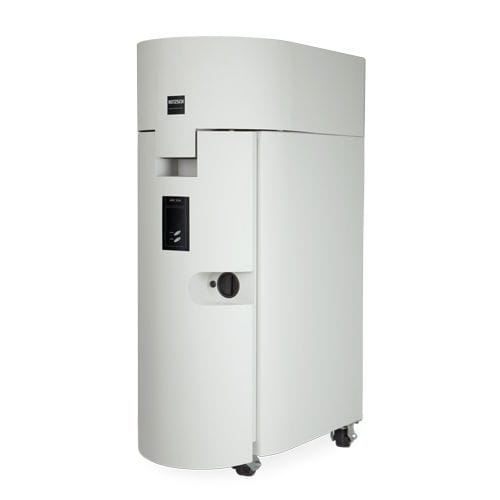The Accelerating Rate Calorimeter 305 (ARC® 305) provides adiabatic calorimetry data in a safe, controlled laboratory environment.
Accelerating Rate Calorimeters can be used for the thermal analysis of solid or liquid chemicals or for gas/liquid, liquid/liquid, gas/solid, and liquid/solid mixtures. They can also be used for process simulation of batch and semi-batch reactions, fire exposures, emergency relief venting, and physical properties measurement.
The advanced ARC® 305 helps engineers and scientists identify potential hazards and tackle key elements of process optimization and thermal stability. As a highly versatile, miniature chemical reactor, sample can be stirred, material injected, and it can be used for vent studies. The ARC® 305 has been designed to use the traditional 10 ml ARC® spherical vessel but can also use the larger 130 ml vessel for low Phi or vent testing.
Fastest Tracking Rate: More reliable data and a wider range of application due to the fastest tracking rate up to 200 K/min
VariPhi technology: Patented VariPhi technology can realize low phi test even with a small and safe sample size. Effective detection of both exothermic and endothermic transitions can be achieved by the versatile operating modes on ARC® 305
Proteus® software: Controlled by the same powerful Proteus® software which user can use to operate all other NETZSCH thermal analysis instruments in the lab.
Accelerating rate calorimetry has been the cornerstone of chemical process safety for the last 30 years. These cases require measuring both the amount of heat released (thermodynamics) and the rate at which it is released (kinetics).


